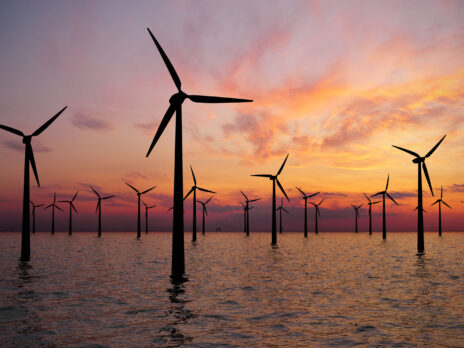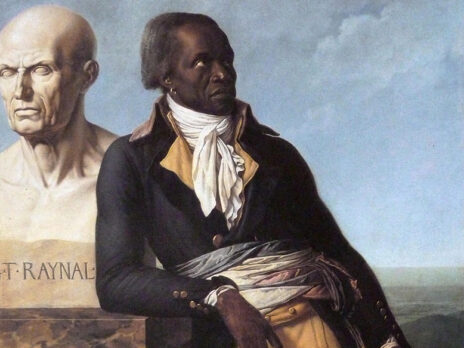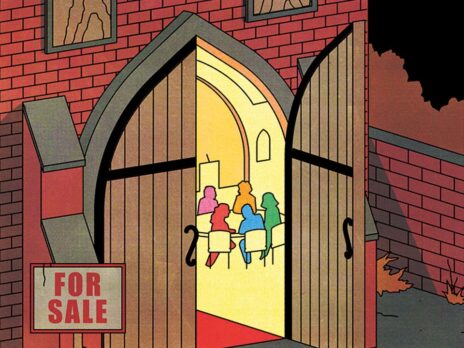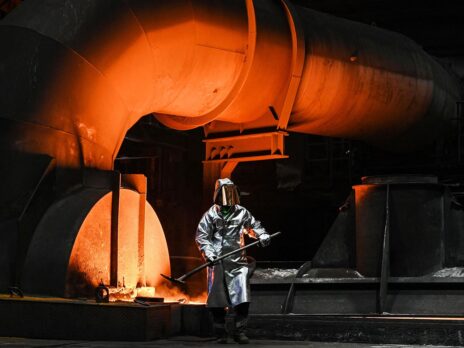It was the French Revolution that defined the stakes in modern war as an existential clash between nations in arms, in which fundamental principles of rule were in question. War was the world spirit on the march. That is what the German poet Goethe thought he witnessed at the Battle of Valmy in 1792, where a rag-tag revolutionary army unexpectedly turned back a much better-equipped counter-revolutionary invasion by royalist and Prussian forces. “From this day forth,” he wrote, “begins a new era in the history of the world.” Two days later, the French Republic was declared.
A “world-soul” on horseback is what Hegel thought he saw, as Napoleon cantered through the city of Jena in October 1806 on his way to the battle that would push the Prussian state to the brink of extinction. War was not simply a violent practice of princes, a duel writ large. War was History with a capital H – the “slaughter-bench”, Hegel would call it – “at which the happiness of peoples, the wisdom of States, and the virtue of individuals have been victimised”. It was something both fascinating and horrifying. Transformative and yet also on the edge of tipping over into absolute violence, as in the horrors of guerrilla war in Spain, depicted by Goya. Two centuries later, in the commentary on the war in Ukraine, one can feel the same spirit stirring.
The spectacle of war has always evoked mixed emotions. On the one hand, enthusiasm and something akin to relief: here, finally, is real politics, real freedom. And, on the other hand, horror at the violence, suffering and destruction.
[See also: John Mearsheimer and the dark origins of realism]
In the wake of Waterloo in 1815, both diplomacy and contemporary social science tried to put the genie back in the bottle. For all his grandeur, Napoleon had been defeated. Millions had died in the global wars sparked by the French Revolution, and his project of modernising empire had come to naught. The lesson, according to the followers of the sociologist Auguste Comte, was that the future belonged to industry, not to the soldiers.
War, however, refused to be tamed. Contrary to myth, the 19th century was not an era of peace. Colonial wars and massacres merged in the middle of the century with a surge of violence triggered by the formation of nation states: in Italy (1861), in the US (1865), in Japan (1868) and in Germany (1871). Massed armies, mobilised by railways and equipped with lethal modern weapons, wrought terrifying destruction. The violence escalated further in the 20th century, with the series of wars spanning Eurasia that began with the Russo-Japanese War in 1904 and ended in Korea in 1953.
Peace between the great powers was secured thereafter not by treaty, but by a Cold War stand-off that was balanced on the threat of mutually assured destruction. The idea that the “postwar period” was one of demilitarisation is far from the truth. As a share of population, the US had more people in uniform through the late 1960s than the Kaiser’s Germany had before 1914. France and Britain maintained a substantial colonial military presence throughout Asia and Africa. West Germany in the 1980s had 450,000 men in uniform and fielded two battle-ready armoured corps. Defence spending as a share of GDP was as high as it had been at the time of the dreadnought arms race.
That this terrifying stand-off ended with the largely peaceful overthrow of the communist regimes in Europe in 1989 persuaded Francis Fukuyama, then a member of the policy planning staff at the US State Department, that we had reached “the End of History”. This is often described as a triumph of capitalism and democracy. It was certainly that, but no less significant was that the West had won the military contest without firing a shot in anger. The Warsaw Pact folded. By the time of Leonid Brezhnev, from the 1960s onwards, the Soviet system no longer seemed worth dying for. Mercifully, that spared Nato the question of whether the world was better off dead than red.
Anchored in American power and depoliticised neoliberalism, Fukuyama’s vision of the End of History remains a compelling interpretation of the decades since the fall of the Berlin Wall. The ideological contest seemed settled in favour of a one-dimensional vision of liberal democracy, the rule of law and markets.
The achievement of the End of History consisted in not just the triumph of the liberal model, but in that it was attained bloodlessly. That gave it both its sense of inevitability and, as Fukuyama wrote, its post-heroic quality.
Of course, the End of History did not mean the end of events or the end of war. That threat of nuclear destruction continued to hang over us. Under the de-targeting agreement of 1994, the coordinates of major cities were removed from the computers of Russian and American intercontinental ballistic missiles (ICBMs). But they could be loaded back if required. We still live under the menace of absolute atrocity. Meanwhile, actual wars have continued to be fought. But war has changed.
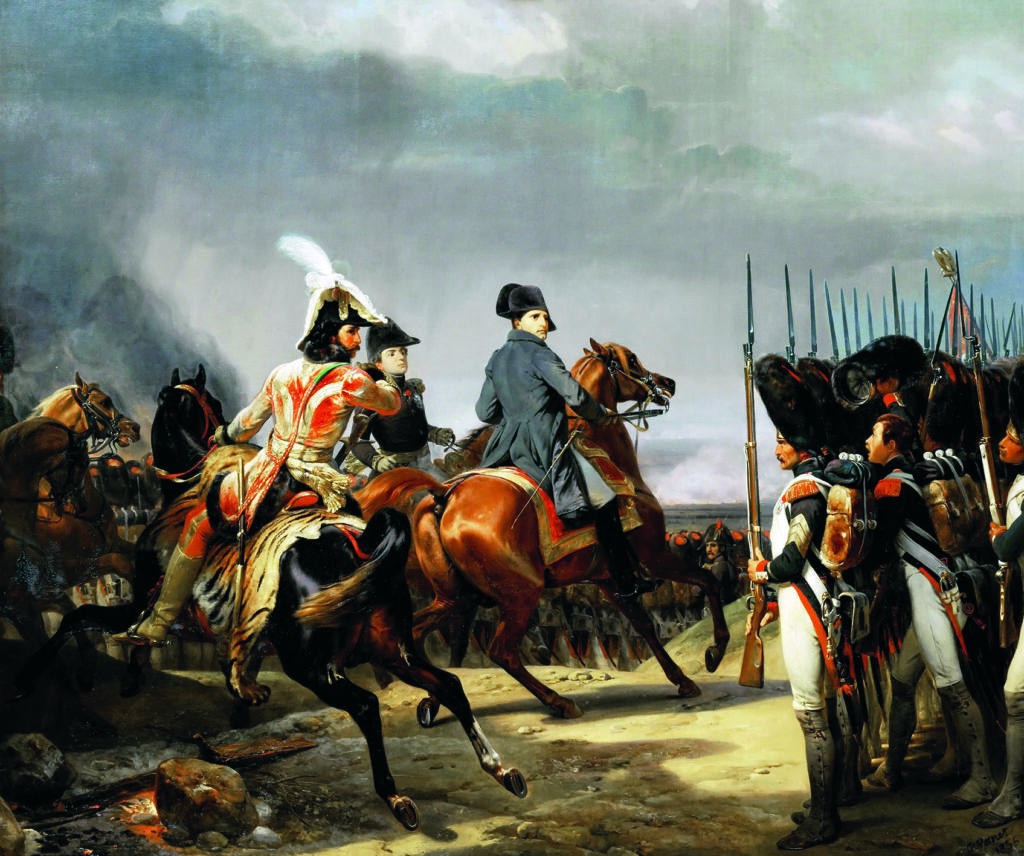
The Iran-Iraq War of the 1980s was perhaps the last conflict in which two sides commanding substantial armed forces had everything at stake; any means could be mobilised to secure victory and neither side could afford to lose. The bloodiest wars in more recent decades – notably those in the former Yugoslavia, central Africa and Syria – were sprawling civil wars, often involving multiple non-state actors. In Iraq and Afghanistan the stakes were existential, but only for the locals. The US, which led the invasions, was shaken by the 9/11 attacks, but the global war on terror was always more of a policing action than a conventional war.
The question posed by Vladimir Putin’s invasion of Ukraine is whether in this fundamental sense the spell of the End of History has finally been broken. Has history restarted in a tragic key, as President Macron has recently put it? Have we reached the end of the end of military history?
The answer we give to that question initially depends on the interpretation of Putin’s motives.
The most obvious reading is that he has never accepted the verdict delivered by history in 1991. He is not reconciled to the collapse of the Soviet Union. He does not accept the claim of the US and its allies to define the international order. Already in 2007, at the Munich Security Conference, he announced his challenge to the West. He has since been waiting for the moment to revise the terms of Ukraine’s independence. He could have done so in the spring of 2014 when, following the Maidan Revolution, the Kremlin considered a full-scale invasion. Instead, he opted for the annexation of Crimea and supporting the Donbas breakaway. Twice Russia forced the Ukrainians to the bargaining table at Minsk because Kyiv thought there was a real risk of being overrun by Russian forces. In the years since, much as the Bush administration regretted the failure to overthrow Saddam in 1991, Putin came to regret his cautious approach.
But if this is his basic motivation why in 2022 was he willing to risk the ultimate trial of battle? War may be the extension of political intercourse by other means, but making that leap into armed struggle changes the terms of international affairs irrevocably. As a tool of policy war is highly unpredictable. The violence tends to escalate. It is by nature zero sum. It involves huge risks. As the Prussian general Carl von Clausewitz first laid out in the wake of Napoleon’s defeat, victory can only be achieved by articulating success on the battlefield, geopolitical calculation and the balance of political energies and passions. It is a rare feat to pull that off. As the Israelis have found to their cost since the Six Day War in 1967, even the most overwhelming military victory can become an albatross.
[See also: The Nord Stream 2 saga is not over]
One argument is that Putin gambled because he is a man of war. As such, he is at odds not only with the geopolitical boundaries that defined Fukuyama’s End of History moment; more fundamentally he is at odds with the liberal vision of a world ruled by commerce and the Western conception of international norms. Putin sees history as being moved by the struggle of dark forces and there is merit in casting off hypocrisy and bringing that struggle into the open. He stamped his authority on Russian politics in 1999 with the bloody second invasion of Chechnya. In 2008 he seized the opportunity to deliver a humiliating military punishment to Georgia after it made a bid for Nato membership. In 2015 he threw Russia’s backing behind Bashar al-Assad and decided the Syrian civil war.
This embrace of war leads some analysts to describe Putin as a man of the 19th century. That is perhaps unfair to the 19th century. In that era, a brutal arriviste like Putin would never have been allowed near the levers of power. For the eminent Russian historian Stephen Kotkin, Putin instead embodies the Russian tradition of expansionism that goes back half a millennium to the age of Ivan the Terrible.
These are pleasingly simple ideas. Putin invokes them himself. And that should make us suspicious. We would perhaps be better advised to turn back to Fukuyama. In the final chapter of The End of History (1992) – titled “Immense Wars of the Spirit” – he ponders the question of “how long megalothymia will be satisfied with metaphorical wars and symbolic victories”. In the early 1990s Fukuyama was already warning that the moment would come for a figure like Putin, who would break out of the stifling conventions of post-history to launch “a nihilistic war against liberal democracy”, a bloody battle for prestige, “only this time with modern weapons”. On this reading Putin would not be so much the lineal descendant of Ivan the Terrible, as a postmodern, time-warped avatar. Indeed, amid the Vegas glitz of the Kremlin’s public rooms, his regime seems something closer to a cosplay re-enactment.
The defining characteristic of the Russian invasion, other than its brutality, is the sense of history repeating itself as farce. There is little to suggest that Putin imagined he was embarking on an existential trial of strength. In fact, the opposite seems to be the case. His approach to invading one of the largest countries in Europe, with a population of more than 40 million, was nothing short of frivolous. He thought of war as a bagatelle – asymmetric, swift, decisive, like Georgia in 2008 or Crimea in 2014. It would be little green men writ large.
In this reading, far from rupturing the End of History, or forcing a return to primal conflict, Putin saw himself as adjusting an anomaly created by the overthrow of Ukraine’s pro-Russian Viktor Yanukovych government in 2014. And though the West has responded to Putin’s violence with outrage, we should admit that at first we shared Putin’s framing of the war. Our backing of Ukraine was lacklustre at best. We too thought that if Putin was fool enough to launch an attack, it would be over soon. We did not take Ukraine seriously as a state. We stood back and left it to its fate. Ukraine was, and remains, beyond the protection of Nato’s Article 5.
Perhaps the most telling moment came when the US secretary of state, Antony Blinken, denounced Putin’s invasion of Ukraine as a “war of choice”. Whether consciously or not, his phraseology aligned Russia with the United States and Volodymyr Zelensky’s Ukraine with Saddam Hussein’s moribund dictatorship.
Putin’s invasion and the attack on Iraq in 2003 by the US-led coalition have in common a disregard for both international law and geopolitical logic that left much of the rest of the world aghast. The least one can say for the US and its allies, however, is that when they launched their attack they made sure to do so with overwhelming force. The “shock and awe” aerial bombardment was vastly more intense than anything Putin’s forces have so far delivered. What frustrated the invaders was not the Iraqi army but the subsequent insurgency.
In the war in Ukraine, the wildcard is the Ukrainians. What no one seriously expected was that Ukraine’s military would stand up so well to Russia’s inadequate assault. In this sense it is not Putin but Ukraine that has ruptured the End of History paradigm. Ukrainians are willing to die to resist Russian overlordship and to hold open the possibility of membership of the EU and Nato. If anyone has taken us back in time to the dramas of 19th- and 20th-century history, it is not Putin but Zelensky and his people. They are enacting a drama of heroic resistance, sovereignty and self-determination, worthy of their neighbour Poland, the locus classicus of romantic, and often doomed, bids for self-determination.
But we should beware our Eurocentric prejudices. It is not Ukraine’s call to arms that marks this war as distinct. The Iraqi insurgents and the Taliban too saw themselves precisely in these terms. In their own cultural sphere, they made appeals no less far-reaching than Zelensky’s. Nor is this the first war to be broadcast through social media. For the past decade anyone who wanted to could follow the gruesome fighting in Syria, siege by siege, day by day.
What marks this war as different is that the Ukrainian resistance has stopped Putin’s invasion in its tracks. The Iraqi and Afghan resistance were never able to do that. And the Ukrainians have been able to do so in large part because the outside world to which they appeal is not a diffuse religious or cultural community, but the armed alliance of the West, which has responded with a flood of modern anti-tank and anti-aircraft weaponry. The Taliban scrounged their Stingers second-hand. The Ukrainians get them fresh from Nato stores.
The result is that Putin awakens from the resentful nightmare of Russia’s post-Cold War memory into a bona fide, existential crisis, a “real war” that the Russian army is far from certain of winning. And in which the charge sheet for war crimes is clocking up.
Again, the experience of defeat and discredit on the part of the larger power is not itself novel. The US was discomfited by the failure of the war in Iraq and decided to cut its losses in Afghanistan. But though that hurt the incumbent president it did not put America’s regime in question. For Putin, at this point, everything is at stake.
To escape the nightmare, Putin may choose to escalate the invasion, even toying with the nuclear option. But, as the extent of Russia’s military frustration has sunk in, the Kremlin seems to be concentrating more on finding a way to claim a victory, perhaps by gaining territory in the east or the south, a success that would enable Moscow to agree some kind of settlement.
Putin may have challenged the post-Cold War order but, given the liminal status of Ukraine – neither a member of the EU nor of Nato – and the underwhelming performance of the Russian military, which makes an attack on the Baltics or Poland seem unlikely, it is up to others, principally China and the Western alliance, to decide what to make of this clash. Since China has so far acted with notable caution, realistically the initiative lies with the EU and with the US. The end of the End of History will be what we make of it.
[See also: The world is at financial war]
Ukraine, of course, has every interest in using the momentum of its early successes to widen the conflict. Its people know that they have upset the expected course of events. They know that their resistance has prised open a historic opportunity. Their fear must be that history will close over them, that the weight of Russian power will impose itself and that the West will stick to its commitments to stand clear. Kyiv counters this by insisting that its struggle is “everyone’s struggle”. Like it or not, they insist, we are all already engaged in a Third World War. Russia’s aggression against Ukraine is just the beginning.
Clearly, if it so chose, Nato could turn this war into World War Three. All it would need to do is attempt to impose a no-fly zone. On the basis of Russia’s incompetent performance so far, there may be some who would fancy the West’s chances in such a war. Europe’s governments have already gone far further than anyone thought likely. Sweden and Germany have delivered weapons. Switzerland has imposed financial sanctions. Faced with Russia’s egregious breach of international law, the West lectures India and China that there can be no such thing as neutrality. But for all that, the EU and the US have avoided joining the fight. The flow of weapons delivered to Ukraine has been dramatic and it may ultimately defeat Russia. But those weapons are carefully selected. They equip the Ukrainians to repel Russia; they don’t put Ukraine in a position to attack Russia.
Putin’s allegation that Ukraine was being developed as a base from which to strike at the soft underbelly of Russia seems less plausible now than it did before the war. Offensive weapons are precisely what is not in the arsenal that the West has delivered. Nor has Kyiv asked for them. Economic sanctions are far-reaching, but they have stopped short of an all-out global campaign against Russia’s energy exports like that which the Obama administration initiated against Iran in 2012. The sanctions do damage Russia’s economy and they confirm that the West was serious when it said that Putin would pay a price for an attack. But beyond that there is a deliberate obscurity about their rationale.
Although Joe Biden has blurted out his indignation that bad characters like Putin are in charge of modern states, the West remains shy about embracing regime change as its ultimate goal. This is an important concession to diplomacy. Were Putin’s overthrow to be adopted as the official Western policy goal, it would be a return to the End of History thesis in its most militant form. Indeed, it would be a return to the origin of the economic weapon 100 years ago, in the war waged in the name of liberalism against Germany and its allies in the First World War. It was not for nothing that the economic blockade was the chief weapon with which the League of Nations attempted to enforce peace. The networks of communication, transport and trade would be weaponised to erase those who sought to deviate from the forward march of liberal modernity.
As critics of the interwar order like Carl Schmitt sensed, the hegemony of the victorious powers in 1918 threatened the first End of History. Churchill, Stalin and Hitler all sensed as much. To challenge that order in the 1930s, to restart history for the first time, Hitler, Mussolini, the Japanese and Stalin’s Soviet Union undertook Herculean efforts, out of all proportion to anything that Putin has contemplated. Nevertheless, the Axis powers were crushed by overwhelming material superiority, setting up the Cold War that followed.
In 2022, if Putin were to be brought down by military frustration and economic exhaustion, and were his regime to be replaced by one that was pro-Western and ready for peace, all those who have levelled cheap criticism at Fukuyama over the years would owe him a giant apology. It would be the most dramatic and unexpected vindication of his prediction that the Western model would triumph and would do so by means short of open warfare.
However, if the war does not escalate to a Third World War and Putin’s regime does not collapse, there will be no option but to face the difficult business of diplomacy and peace-making. It will be a bitter task for both sides. Like the Brest-Litovsk Treaty of March 1918, which first gave international recognition to a sovereign Ukrainian state, it will likely involve harsh and divisive compromises. In light of the crimes perpetrated by the Russian invaders, it will be a supreme test of Ukraine’s political system. But it will be precisely in those compromises and the vision for the future that they imply – for Ukraine and Russia, for Europe and Nato – that the meaning of this war will ultimately be defined. It will be in that process that history is truly made.
[See also: Francis Fukuyama: We could be facing the end of “the end of history”]
This article appears in the 06 Apr 2022 issue of the New Statesman, Easter Special


